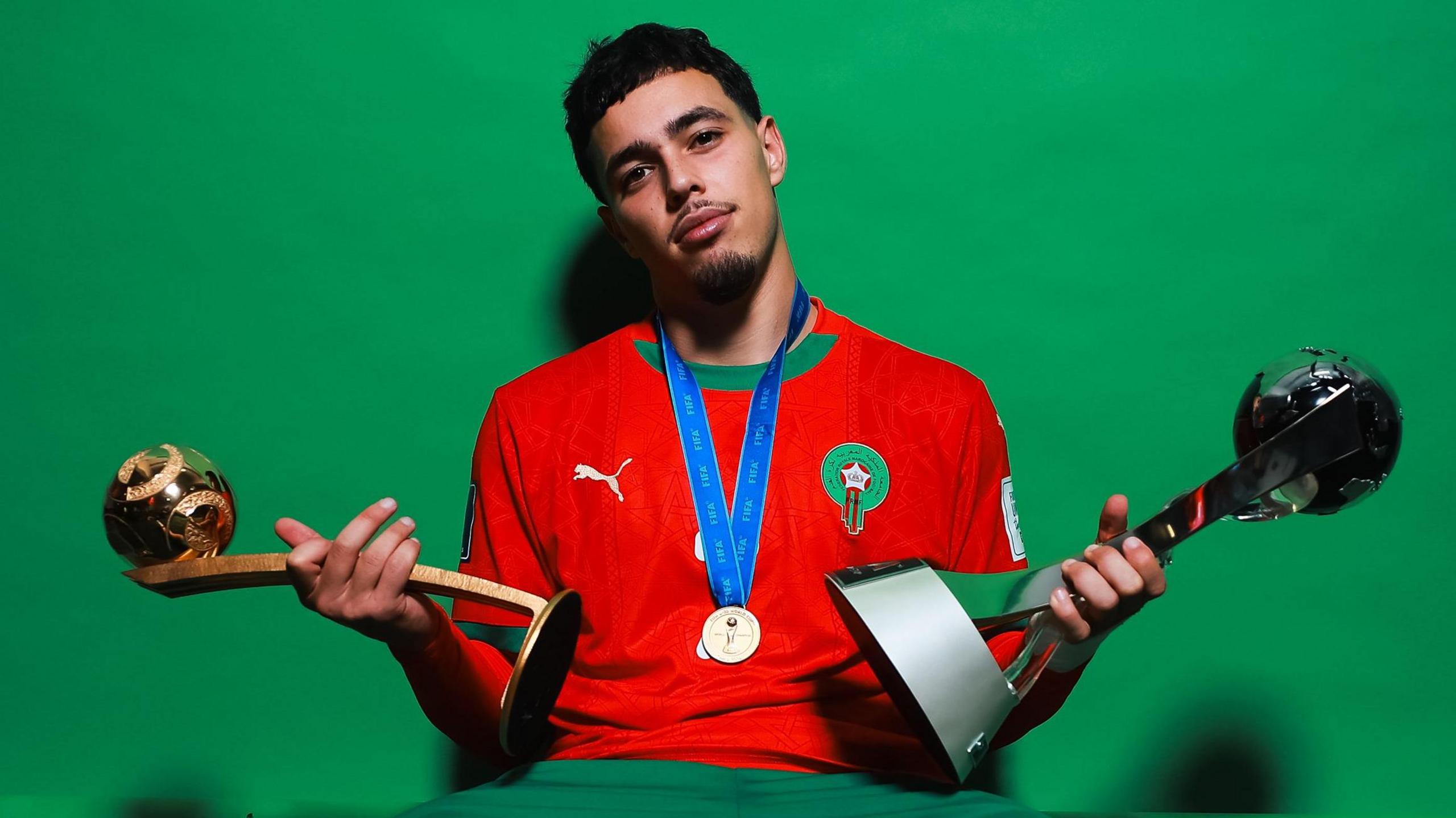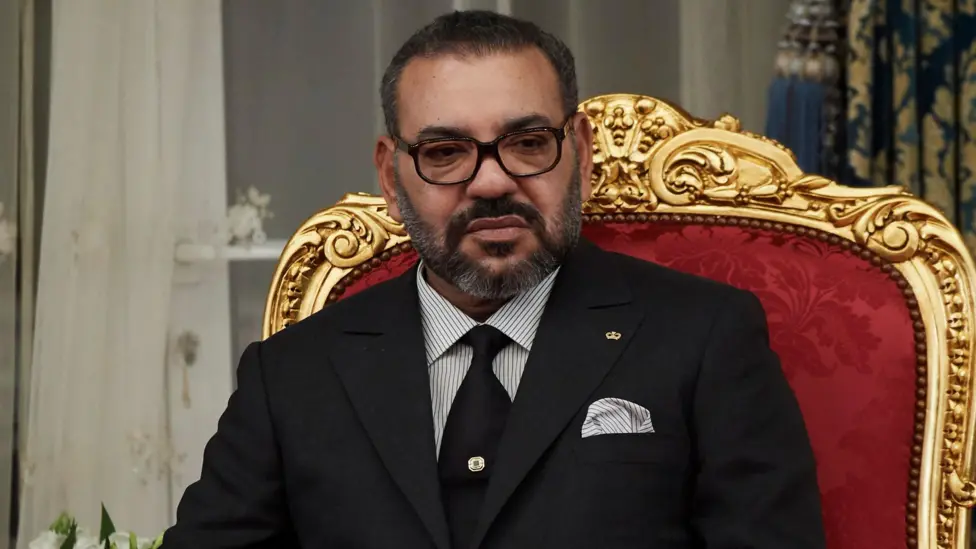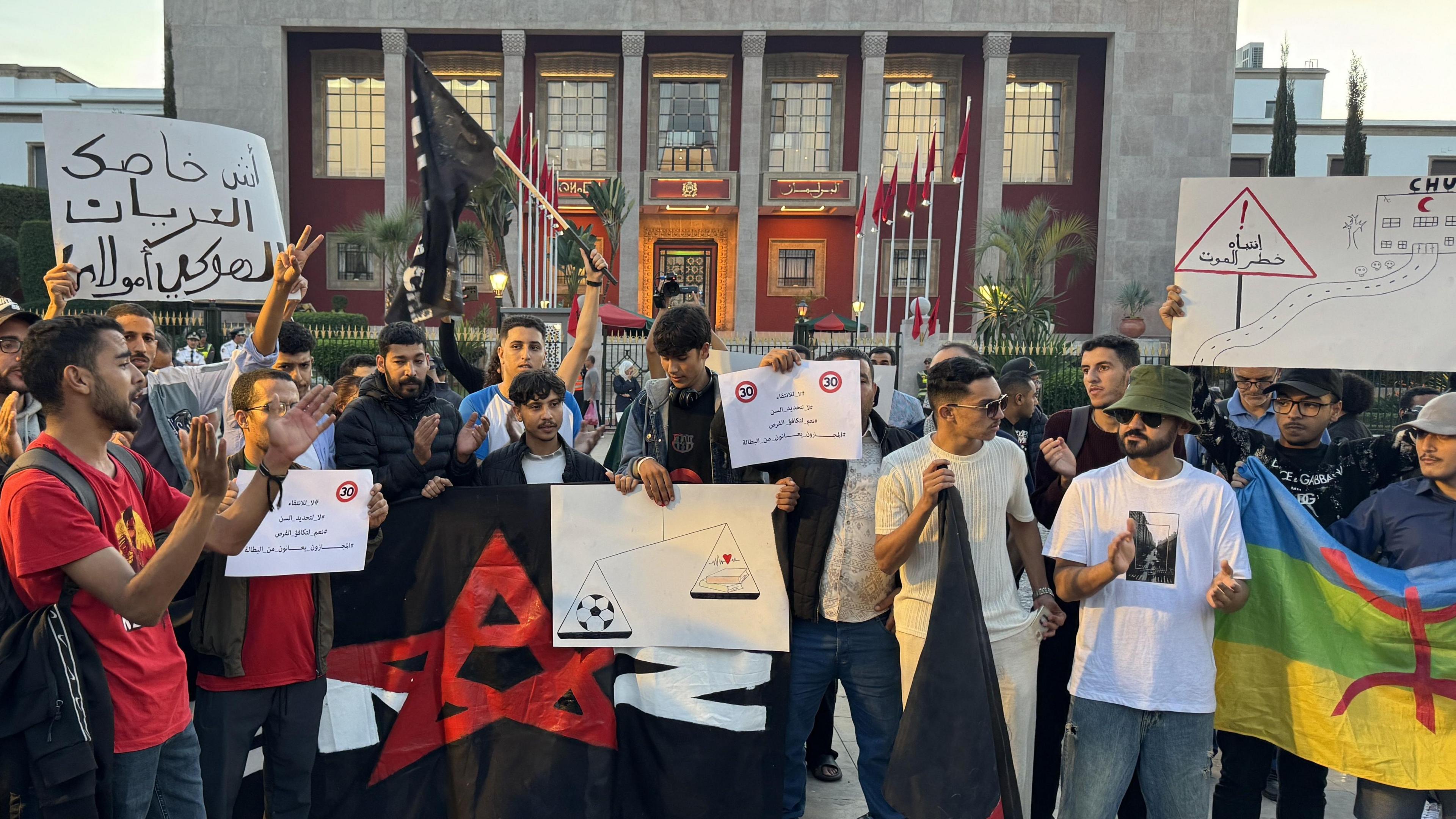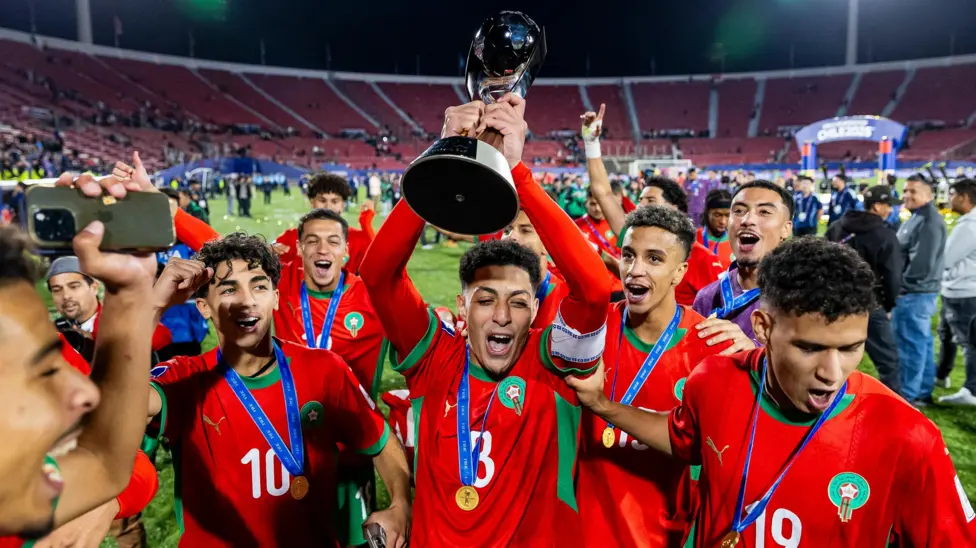Morocco beat record six-time Under-20 World Cup winners Argentina to lift the trophy in Chile
Morocco want to be a “strong contender” at all levels of global football after becoming the first Arab country to win the Under-20 World Cup, having beaten Argentina 2-0 in the final on Sunday.
A spokesperson close to the Royal Moroccan Football Federation (FRMF) has told BBC Sport Africa the victory proves “the vision worked” following the country’s huge investment in the game over the past decade.
Striker Yassir Zabiri scored both goals against the record six-time U20 World Cup champions in Santiago, Chile.
Morocco became just the second African nation to lift the trophy, emulating Ghana in 2009.
King Mohammed VI, whose financial backing has been crucial in developing the game in recent years, paid tribute to the Atlas Cubs.
“We salute this sporting achievement, the result of your high level of self-confidence, your unwavering belief in your potential and talent, the spirit of cohesion and harmony you have demonstrated, as well as your superb professional performance throughout this World Cup,” he said.
“As much as you have delighted and brought joy to the passionate football fans, you have also filled us with happiness, as well as the entire Moroccan people.”
Victory promoted celebrations throughout the kingdom.
“It was a sleepless night,” said football pundit Jalal Bounouar, who watched the game which kicked off at midnight local time.
“The whole country stayed awake all night, people could not believe what had happened, being champions of the world for the first time.
“In every big city, in villages, in towns, people ran to the streets waving flags, singing, shouting, cars were honking.
“Moroccans are addicted to football and winning the World Cup means a lot.”
How did Morocco win the trophy?

Morocco were only making their fourth appearance at the U20 World Cup – and their first since 2005 – after qualifying as runners-up at this year’s U20 Africa Cup of Nations (Afcon).
The Atlas Cubs beat Spain and Brazil in their opening two games, and went through as group winners despite a 1-0 defeat by Mexico.
They saw off South Korea 2-1 in the last 16, then overcame the United States 3-1 in the quarter-finals.
The North Africans progressed to the final by beating France 5-4 on penalties following a 1-1 draw after extra time.
Zabiri, who is on the books of Portuguese top-flight side Famalicao, put Morocco ahead in the final with a fine curling free-kick in the 12th minute, then volleyed in a second from Othmane Maamma’s cross in the 29th minute.
Maamma, who joined Watford from Montpellier in July and has been dubbed the ‘Moroccan Cristiano Ronaldo’ following comparisons to the Portugal legend, won the golden ball for the best player at the finals.
Zabiri was awarded the silver ball after finishing the tournament as joint-top scorer with five goals.
By royal appointment

The rise of Moroccan football has been a long-term project for King Mohammed VI and the FRMF.
The king first discussed his plan to use football as a tool for social and economic development in 2008, before opening an academy in 2009 and a $65m (£48.5m) training facility near the capital Rabat in 2019 – both of which bear his name.
Five of the players who started the U20 World Cup final attended the academy, as did the likes of Marseille centre-back Nayef Aguerd, Girona midfielder Azzedine Ounahi and Fenerbahce striker Youssef En-Nesyri – all of whom played a part in the Atlas Lions’ historic run to the semi-finals of the 2022 Fifa World Cup in Qatar.
“We can’t overlook the major role played by the Mohammed VI Football Academy, a pioneer in this field, where they’ve done remarkable work with young players,” Fathi Jamal, the director of technical development at the FRMF, told Fifa.com.
The training facility boasts eight full-size pitches, gym and medical facilities, an Olympic-sized swimming pool and a 5-star hotel among its amenities.
Meanwhile, the federation has set up its own regional training centres, invested in 7,000 amateur pitches, and looked to modernise its technical staff, emphasising the importance of training local coaches.
Vast sums have also been spent on redeveloping and building stadiums to stage the 2025 Afcon and co-host the 2030 Fifa World Cup – with the total costs reported as $5bn (£3.7bn).
“We are ambitious,” said the spokesperson with knowledge of the FRMF’s plans.
“There is more work to do, but we are in a good direction. Afcon (2025) will be even more exciting.”
However, recent Gen Z protests displayed anger at the sums spent on football with calls for money to be channelled into education, healthcare, housing, transport and job creation instead.
On Sunday, ahead of the U20 World Cup final, the royal palace released a statement promising to allocate 140 billion dirhams ($15bn, £11.2bn) in the 2026 budget to health and education, a 16% increase on last year.

What next for Morocco?
Morocco’s achievement in becoming the first African side to reach the semi-finals of the World Cup at Qatar 2022 was followed by the Under-23s winning bronze at the Paris 2024 Olympics.
They have also won the past three African Nations Championships in which they have participated (2018, 2020 and 2024).
But the FRMF believes the potential also stretches to the female game, as well as futsal and beach soccer.
The Atlas Lionesses have been runners-up at the past two editions of the Women’s Africa Cup of Nations on home soil, while Morocco is currently staging the Under-17 Women’s World Cup – and will host the next four editions up to 2029.
Meanwhile, BBC Sport Africa understands that members of the successful U20 squad are being told to aim for a place in the men’s senior side at the 2030 World Cup.
But Bounouar thinks three players are already good enough to be included in Walid Regragui’s squad for the upcoming Afcon, when pressure will be intense to end the nation’s 50-year wait for a continental title.
“These players represent the future of Moroccan football,” he said, highlighting Maamma, Zabiri and centre-back Ismail Baouf as the likeliest inclusions “combining skill, discipline and the winning spirit”.
“The country believes that Moroccan football has entered the golden era.”
DISCLAIMER: The Views, Comments, Opinions, Contributions and Statements made by Readers and Contributors on this platform do not necessarily represent the views or policy of Multimedia Group Limited.
DISCLAIMER: The Views, Comments, Opinions, Contributions and Statements made by Readers and Contributors on this platform do not necessarily represent the views or policy of Multimedia Group Limited.
